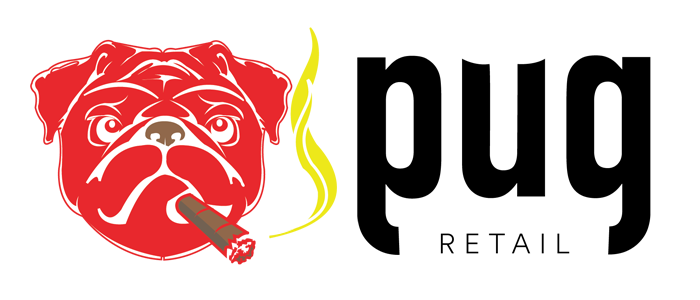What makes a great supplier relationship essential for your business?
Building and maintaining strong supplier relationships can be the key to thriving in today’s competitive market. When you think about it, suppliers are not just vendors; they are partners that play a vital role in your business success. You might be wondering how to foster these crucial connections to ensure seamless operations and growth for your retail business.
The Importance of Supplier Relationships
A solid relationship with your suppliers can lead to numerous benefits. From better pricing to enhanced communication, nurturing these connections is a fundamental aspect of running a successful retail business. When you cultivate trust and mutual respect with your suppliers, you create an environment that promotes collaboration and innovation.
Reliability and Consistency
One of the most significant advantages of robust supplier relationships is reliability. When your suppliers are invested in a partnership, they are more likely to prioritize your needs, ensuring timely deliveries and quality products. With our POS system at pugretail.com, you can easily track inventory levels and order histories, helping you maintain a consistent supply of products that meet your customer demands.
Better Pricing and Terms
Building a good rapport with suppliers often leads to better pricing and favorable terms. You’re more likely to negotiate discounts or flexible payment options when your suppliers see you as a committed partner rather than just another customer. Utilizing Bighairydog.com’s insights into industry standards can enhance your negotiation skills, enabling you to secure advantageous deals.
Enhanced Communication
Clear communication is the cornerstone of any relationship, including those with your suppliers. When you take the time to establish open lines of communication, it leads to improved understanding. This is particularly beneficial in situations where you may need to make urgent requests or adjustments. Leveraging the features of pugretail.com allows you to communicate with suppliers directly from your POS system, streamlining the process significantly.
Building Lasting Supplier Relationships
Creating and sustaining supplier relationships requires intentional effort. Below are strategies to keep in mind as you work on these relationships.
Regular Check-Ins
Don’t wait for issues to arise before reaching out to your suppliers. Regular communication fosters goodwill and ensures everyone is on the same page. A simple check-in can go a long way in maintaining rapport.
Feedback Loop
Offering constructive feedback on their products or services can be a valuable part of your relationship. Suppliers appreciate input that allows them to improve their offerings, creating a win-win situation. Think about how you can incorporate feedback channels into your interactions, and make sure you also listen to their suggestions.
Stronger Collaboration
Consider involving your suppliers in your planning processes. When they understand your business goals and challenges, they can provide better support. Collaborating on projects or promotions can lead to mutually beneficial outcomes and solidify your relationship.
Choosing the Right Suppliers
The initial step in building healthy supplier relationships is choosing the right partners. Not all suppliers will align with your business philosophy or needs, so it’s essential to evaluate your options carefully.
Assess Compatibility
Look for suppliers whose values align with yours. Whether it’s sustainability, innovation, or customer service, shared values create a strong foundation for collaboration. Additionally, it’s crucial to assess whether their product offerings dovetail with your business model.
Evaluate Reliability
Look for suppliers who have a history of reliability. Check reviews, ask for references, and evaluate their financial health. A supplier’s ability to deliver consistently will fundamentally impact your ability to serve your customers effectively.
Consider Diversity
Having a diverse supplier base can help mitigate risks associated with supply chain disruptions. Engaging with various suppliers enhances your flexibility and can open doors to new product opportunities.
Maintaining Supplier Relationships
Once you’ve established relationships with your suppliers, the next challenge is to maintain them over time.
Invest in Communication
Keeping the lines of communication open is essential. Regular updates on your business status, changes in demand, and even personal check-ins can foster goodwill. Your suppliers will appreciate being kept in the loop and will be more likely to offer assistance when you need it.
Celebrate Milestones
When you reach milestones together—such as completing a significant project or hitting sales goals—take the time to celebrate. This could be as simple as sending a thank-you note or organizing a small get-together. Recognizing your suppliers’ contributions enhances loyalty.
Continuous Improvement
Always look for ways to improve your relationship with suppliers. This could mean revisiting agreements, negotiating terms, or even adjusting payment structures to ease their burden. A proactive approach enables you to adapt and grow together.
Leveraging Technology in Supplier Relationships
In today’s digital age, technology plays a crucial role in managing supplier relationships. With solutions like pugretail.com, you can streamline processes, monitor performance, and improve communication.
Utilize Inventory Management
Your POS system can help you manage inventory levels effectively. By providing suppliers with real-time data, you can prevent stockouts or overstock situations. This not only ensures smooth operations but also builds trust as suppliers know they can rely on your data.
Monitor Supplier Performance
Keep an eye on supplier performance metrics, such as delivery times and product quality. Having tangible data allows you to address any concerns proactively and collaboratively. This level of transparency can further strengthen your relationship.
Employ Efficient Communication Tools
Consider using integrated communication tools that can sync with your POS system. This allows for seamless updates and proficiencies, making interactions smoother.
Navigating Challenges in Supplier Relationships
Challenges can arise in any relationship, including those with suppliers. However, how you approach and manage these challenges can make a significant difference.
Address Problems Promptly
When issues arise, address them quickly to demonstrate your commitment to the partnership. Discuss the situation openly, focusing on finding solutions rather than placing blame. This can transform potential conflicts into opportunities for growth.
Stay Open to Negotiation
Supplier needs may change, and flexibility can go a long way. Be open to renegotiating terms, especially in changing economic climates. Your suppliers will appreciate your willingness to adapt, and a more flexible partnership often leads to greater loyalty.
Build Trust Gradually
Trust develops over time through consistent actions and transparent communication. Each interaction can either bolster or weaken that trust, so be mindful of how you engage with your suppliers.
Training Your Team on Supplier Management
Your team plays a significant role in the effectiveness of supplier relationships. Providing them with the tools and knowledge to manage these interactions can lead to improved outcomes.
Conduct Workshops
Consider regular training workshops focused on supplier relationship management. Topics can range from negotiation skills to understanding product quality metrics. The more informed your team is, the better they can represent your business.
Encourage Collaboration
Foster a collaborative environment where team members can share insights about suppliers. This could be through regular meetings or shared platforms where everyone can contribute. Such collaboration creates a comprehensive understanding of supplier strengths and weaknesses.
Onboard New Employees Effectively
Ensure that new hires understand the importance of supplier relationships and how to manage them effectively. Providing them with resources like pugretail.com can streamline their onboarding process and enhance their confidence.
Conclusion
Building and maintaining strong supplier relationships is not a one-time effort but a continuous journey. It requires ongoing communication, collaboration, and an understanding of mutual needs. By valuing these relationships, you can create a more efficient, productive, and ultimately successful business model. Remember, at the heart of successful supplier relationships is the commitment to work together for mutual growth.
Think about the strategies shared here and how you can integrate them into your practices. With the right approach, you can transform your supplier relationships into a powerful asset that fuels your retail success.

